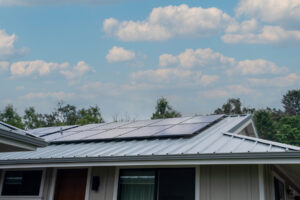If you live in Hawaii, you already know — paradise isn’t cheap. From groceries to gas to your monthly electric bill that feels like rent, the struggle is real. So it makes sense that solar power gets a lot of hype here. But is it actually worth the investment?

Photo by RES Hawaii
First off, Why Even Think About Solar in Hawaii?
1. Electricity is Expensive
Hawaii has the highest electric rates in the U.S., full stop. Like, we’re talking 3x higher than the national average. That means if you install solar, your potential savings are way higher than if you lived on the mainland. Big win.
2. The Sun is Always Serving
You’re literally surrounded by sunshine all year long. Why not put it to work? Solar panels in Hawaii tend to perform better than in many other states just because the conditions are ideal.
3. Tax Credits = Major Discounts
Federal Tax Credit: You get 30% off your total system cost as a tax credit through 2025.
Hawaii State Credit: On top of that, Hawaii gives you 35% back (up to $5,000).
When you stack those together, you’re looking at nearly half off your solar setup. That’s better than most Black Friday deals.
Let’s Talk Numbers
A typical solar system in Hawaii costs around $15K–$30K upfront depending on the home size and usage of power. Keep in mind, pricing is constantly changing due to equipment and labor.
Most homeowners break even in 7 years, and after that, it’s all savings.
Over 20–25 years, some people save $30K+ in electricity costs. That’s a lot of poke bowls.
So What’s the Catch?
Okay, solar isn’t a perfect fit for everyone. Here’s what to keep in mind:
1. The Upfront Cost is Still… a Lot
Even after credits, dropping tens of thousands isn’t exactly pocket change. Financing is an option (solar loans, leases, or power purchase agreements), but interest rates and terms vary. Pricing on equipment, supplies is constantly changing.
2. Not Every Roof is Solar-Ready
If your roof is shaded, too small, super steep, or facing the wrong direction (north-facing = sad panels), your system won’t perform as well. You might need roof repairs before installation too, which adds to the bill.
3. You Gotta Stick Around
If you’re planning to move in a couple years, you might not see the financial return. Solar is definitely a long game — best for homeowners who plan to stay put.
4. The Net Metering Isn’t What It Used to Be
Hawaii changed its rules. You used to get full credit for energy you sent back to the grid (net metering), but now, the credits are lower. So it’s better to use the energy you generate in real-time — or invest in a battery (hello, Tesla Powerwall).
5. Incentive Changes & Policy Risk
Some incentives are expiring or changing. The federal ITC (30%) is slated to drop/disappear after 2025 for residential systems.
So… Is Solar Worth It in Hawaii?
If you:
Own your home
Have a sunny roof
Plan to stay for 5+ years
Want to fight your electric bill with clean energy
Then yes, solar might just be worth it!
For more LUVA blogs link here